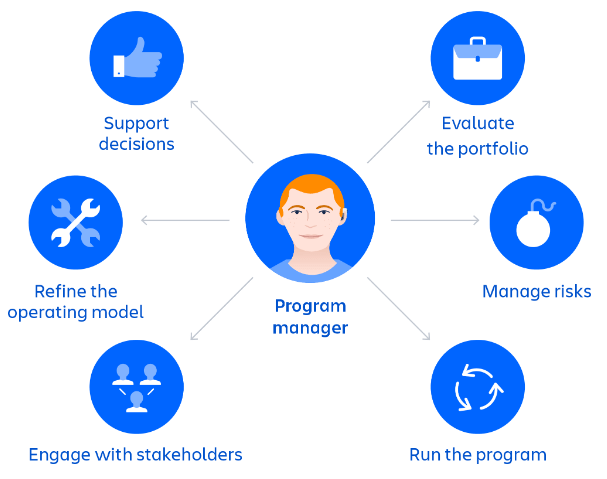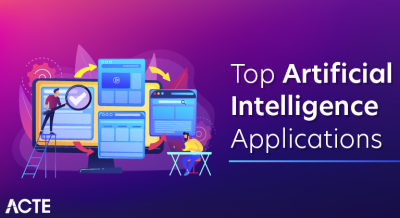
- Introduction to Program Management
- What is Program Management?
- Key Concepts in Program Management
- The Role of a Program Manager
- Program Management vs. Project Management
- Benefits of Program Management
- Key Tools for Effective Program Management
- Conclusion
Introduction to Program Management
Program management is managing a group of related projects in a coordinated manner to achieve broader organizational objectives. Unlike project management, which focuses on individual projects, program management takes a holistic approach to ensure that all projects within a program work together towards a common goal. A program manager oversees the program, ensuring that each project aligns with the organization’s strategic goals and delivers value. They focus on managing the interdependencies between projects, optimizing resources across initiatives, and ensuring the program’s overall benefits are realized in the context of Data Science Training. Program management also involves handling risks, resolving conflicts, and ensuring that projects stay on track to meet deadlines and budgets. By coordinating efforts across multiple projects, a program manager helps streamline operations and avoid duplication of effort, ultimately driving efficiency and maximizing the value delivered to the organization. Organizations can achieve their long-term objectives through effective program management and gain a competitive advantage.
To Explore Data Science in Depth, Check Out Our Comprehensive Data Science Course Training To Gain Insights From Our Experts!
What is Program Management?
Program management involves overseeing multiple related projects to achieve specific business outcomes. It’s a strategic approach that focuses on delivering broader organizational value over the long term, unlike individual projects, which are temporary and focus on specific outputs. The goal of program management is to ensure that all projects within the program align with the organization’s strategic objectives and contribute to its overall success, such as those related to Top Data Science Books for Beginners & Advanced Data Scientist. Key aspects of program management include coordinating the delivery of related projects, ensuring that they work together seamlessly to achieve the desired outcomes. This involves managing interdependencies between projects and resolving any conflicts that arise.

Program managers must also track and maximize the benefits of the program, ensuring that the value realized from the combined projects is greater than the sum of their individual outputs. Additionally, managing program risks and issues is a critical responsibility, helping to mitigate potential setbacks and keep the program on track. By focusing on these areas, program management ensures that the organization achieves its long-term goals efficiently and effectively.
Key Concepts in Program Management
- Program Scope: The program scope defines the overall objectives, outcomes, and deliverables of the program. It outlines the strategic goals and ensures that all projects align with the organization’s long-term vision.
- Interdependencies: Program management involves managing the relationships and dependencies between various projects. Interdependencies can impact timelines, resources, and overall success, requiring careful coordination.
- Stakeholder Management: Identifying and managing stakeholders is crucial in program management. Stakeholders include anyone impacted by or involved in the program, and effective communication helps align their expectations and ensure support.
- Program Governance: Governance structures ensure that the program is managed according to best practices and organizational standards, especially in initiatives like Data Mining Vs. Machine Learning.
- Benefits Realization: One of the key goals of program management is to maximize the benefits derived from the program. This includes tracking and measuring progress to ensure the program delivers value aligned with strategic objectives.
- Risk Management: Identifying, assessing, and mitigating risks is essential in program management. Effective risk management helps prevent potential issues that could derail projects or hinder program success.
- Program Integration: Integration involves coordinating multiple projects, resources, and timelines to work seamlessly toward achieving the program’s objectives, ensuring efficient execution and synergy across all projects.
- Strategic Alignment: The program manager ensures that all projects within the program align with the organization’s strategic goals. They prioritize initiatives that contribute to long-term objectives, guiding the program’s direction and success.
- Coordination and Integration: A program manager ensures projects align and resources are used efficiently, especially in The Importance of Machine Learning for Data Scientists.
- Stakeholder Management: Program managers engage with stakeholders to understand their needs, expectations, and concerns. They ensure consistent communication and manage stakeholder relationships to keep everyone informed and aligned.
- Risk Management: Identifying potential risks across the program is a crucial responsibility. Program managers proactively manage and mitigate risks to prevent issues from affecting the overall success of the program.
- Resource Allocation: Program managers are responsible for ensuring that resources, such as budget, time, and personnel, are allocated effectively across the projects. This involves optimizing resources and managing any constraints.
- Monitoring and Reporting: Program managers track the progress of each project, measuring performance against key performance indicators (KPIs). They provide regular updates and reports to stakeholders to ensure transparency and informed decision-making.
- Benefits Realization: The program manager ensures that the program delivers its intended value. They focus on maximizing benefits and ensuring that the combined results of the projects contribute to the organization’s strategic success.
- Alignment with strategic goals: Program management ensures that all program projects align with the organization’s overarching strategy.
- Resource optimization: By managing related projects together, program managers can optimize resources across the program, reducing duplication and maximizing efficiency.
- Improved risk management: A program manager can identify risks across projects and create unified mitigation strategies to address them in the context of Machine Learning Vs Deep Learning.
- Increased visibility: Program management provides a holistic view of all related projects, allowing for better decision-making and progress tracking.
- Better stakeholder engagement: Coordinating communication and engagement with stakeholders across the program ensures their needs are met and expectations are managed.
- Continuous Improvement: Program management fosters continuous improvement by identifying lessons learned from each project within the program.
Are You Interested in Learning More About Data Science? Sign Up For Our Data Science Course Training Today!
The Role of a Program Manager

Program Management vs. Project Management
Program management and project management are closely related but differ in scope and focus. Program management involves overseeing multiple related projects to achieve strategic business outcomes. The program manager’s primary focus is on coordinating the projects, managing their interdependencies, and ensuring that the program as a whole delivers value that aligns with the organization’s broader goals. Program managers are responsible for maximizing benefits realization and ensuring that the combined efforts of all projects contribute to the long-term success of the organization. In contrast, project management is centered around successfully completing a single project within a defined scope, timeline, and budget, such as in Data Science Training. The project manager’s role is to ensure the project’s outputs are delivered on time and within the specified budget, managing resources, risks, and tasks to achieve the project’s specific objectives. While project management is more tactical and focused on day-to-day execution, program management is strategic. Program managers must consider how multiple projects interact and ensure that their alignment with organizational goals drives overall success. In short, program management looks at the big picture, while project management focuses on the successful completion of individual projects within that broader framework.
Want to Pursue a Data Science Master’s Degree? Enroll For Data Science Masters Course Today!
Benefits of Program Management
Key Tools for Effective Program Management
Program managers rely on various tools to coordinate and monitor the execution of multiple projects within a program, ensuring everything runs smoothly and aligns with organizational goals. Program management software, like Microsoft Project, Smartsheet, and Wrike, helps manage program timelines, resources, and deliverables. These platforms offer centralized systems for scheduling tasks, tracking progress, and managing communication across different projects. Dashboards and reporting tools are also essential for program managers to track program performance and make informed decisions related to Top Data Science Programming Languages. Tools like Tableau, Power BI, and Monday.com offer customizable dashboards that provide real-time insights into key performance indicators (KPIs), progress, and overall program health, making it easier to report results to stakeholders. Resource management tools are crucial for ensuring that resources are allocated efficiently across all projects. Tools like Resource Guru, Float, and Trello help program managers monitor resource utilization and optimize workloads to avoid bottlenecks. Finally, collaboration tools such as Slack, Microsoft Teams, and Zoom enhance communication among team members, helping program managers and project teams stay connected, share updates, and quickly address any issues as they arise. These tools streamline teamwork and improve overall program execution.
Go Through These Data Science Interview Questions & Answer to Excel in Your Upcoming Interview.
Conclusion
Program management is a critical discipline for organizations aiming to manage multiple related projects and achieve strategic business objectives. It involves overseeing a group of interconnected projects, ensuring that they are aligned and contribute to the overall goals of the organization. By understanding the key concepts, benefits, and tools associated with program management, organizations can optimize their resources, enhance coordination, and ensure that all initiatives work together harmoniously. One of the main advantages of program management is its ability to manage risks more effectively during Data Science Training. By viewing projects within a broader context, program managers can anticipate potential issues and address them before they escalate. Furthermore, program management ensures that all projects are aligned with the organization’s strategic goals, preventing inefficiencies and misalignments. Through the use of various tools and frameworks, such as program roadmaps, resource management systems, and risk registers, program management helps organizations maximize the benefits of their initiatives. By coordinating efforts across projects, managing risks, and optimizing resources, effective program management drives organizational success and ensures that business objectives are achieved.


